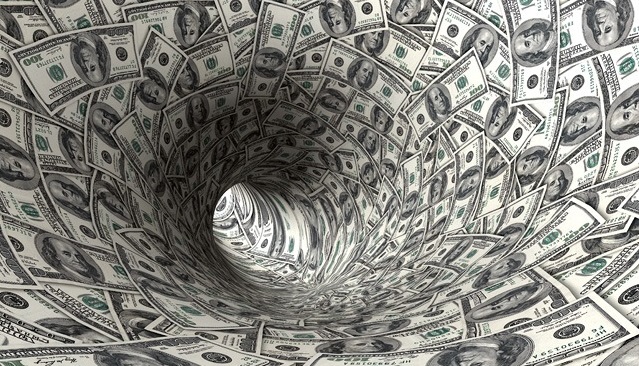
Under the stewardship of Shinzo Abe, the nation of Japan has become a global leader in debt, currency devaluation and inflation. Unfortunately for the Japanese, Abenomics is also leading Japan into a hyper inflationary depression, as the first of his three arrows has shot right through the yen and put a gaping hole in the wallets of every Japanese citizen.
The Bank of Japan (BOJ) has placed all its chips on the bet that inflation will cure all the nation’s economic problems. Making deflation public enemy number one is rather convenient when your country’s public debt to GDP is the highest in the world. In order to end deflation, the central bank has purchased 70% of all newly-issued Japanese Government Bonds. All this money printing is intended to get prices rising, and it has been very successful. Japan’s consumer prices rose 3.1 percent in August from a year earlier. Prices for fuel, light and water rose 6.4 percent on the year. But as real wages continue to fall, the bull’s eye appears to be directed on destroying the Japanese middle class.
In the nonsensical world of Abenomics–where inflation is viewed to be the progenitor of growth–the 3.1% CPI reading is deemed to be insufficient. This is because the core rate of 1.1 percent was far shy of the 2% read they are aiming for. So, as expected, there are calls coming from the lobotomized economic experts in Japan for yet more money printing from the BOJ. Â
Japan’s “experiment†with Abenomics would be much more interesting if we didn’t already know how it all ends. This so called experiment of massive debt monetization has already been tried in countries such as Weimar Germany and, more recently, in Zimbabwe; with disastrous results. The misguided policy of using inflation to create growth is predictably causing asset bubbles in JGBs and stocks. The BOJ is tirelessly printing money to monetize nearly all of the Japanese government’s enormous debt load and also to buy stocks. This has ballooned its equity portfolio alone to be an estimated 7 trillion yen ($63.6 billion). However, all this has done nothing to boost real GDP, balance trade or boost real wages. In fact, Industrial production shrank 1.5 percent month-on-month in August and spending among Japanese households fell a steeper-than-expected 4.7 percent.

